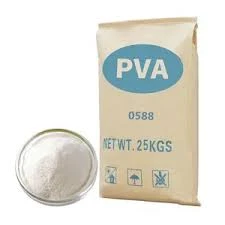The Role of Chemical Thickening Agents in Various Industries
Chemical thickening agents have become essential components in many industries, including food, cosmetics, pharmaceuticals, and construction. These agents are substances that increase the viscosity or thickness of a solution, gel, or suspension without substantially altering its other properties. This article explores the various types of thickening agents, their applications, and the importance of their use in different sectors.
What Are Chemical Thickening Agents?
Chemical thickening agents are substances that enhance the viscosity of a solution. They can be derived from natural sources (such as plant extracts) or synthesized chemically. Common examples include xanthan gum, guar gum, carrageenan, and synthetic polymers such as polyethylene oxide and polyacrylate. These agents function by either increasing the molecular weight of the solution or altering its flow behavior, creating a thicker texture that can enhance product performance.
Applications in the Food Industry
In the food industry, thickening agents play a crucial role in improving the texture and stability of products. They are widely used in sauces, dressings, soups, and dairy products. For example, xanthan gum is a popular choice for salad dressings as it provides a desirable viscosity and prevents ingredients from separating. Furthermore, thickening agents can facilitate low-fat or reduced-calorie food formulations, helping to achieve a creamy texture without the addition of fats. Additionally, these agents improve the mouthfeel of beverages, making them more enjoyable for consumers.
Importance in Cosmetics and Personal Care
chemical thickening agent

The cosmetics industry also utilizes chemical thickening agents to improve product formulations. These agents help to stabilize emulsions, control the flow properties of creams and lotions, and enhance the overall user experience. For instance, carbomers are widely used in gel formulations, providing a smooth texture and consistent application. They can also create a desirable thickness in shampoos and conditioners, which enhances the perception of product quality. Moreover, natural thickening agents such as aloe vera and various plant extracts are becoming increasingly popular in clean beauty formulations, responding to consumer demand for natural and sustainable options.
Pharmaceuticals and Thickening Agents
In the pharmaceutical sector, thickening agents are employed to enhance the viscosity of liquid medications, ensuring proper delivery and absorption of active ingredients. They are vital in formulations such as syrups and suspensions, where a thicker consistency can improve the palatability for children or patients who may have difficulty swallowing pills. Additionally, thickening agents can stabilize formulations that require a longer shelf life, preventing the separation of active ingredients over time.
Applications in Construction and Other Industries
Outside of food and cosmetics, chemical thickening agents play a significant role in the construction industry, particularly in concrete production. They are used to improve the workability and consistency of concrete mixtures, ensuring easy application and strength. Moreover, thickening agents are used in paints and coatings to enhance spreadability and texture, contributing to improved finish quality.
Conclusion
Chemical thickening agents are versatile compounds that serve crucial functions across various industries. Their ability to modify viscosity and enhance texture makes them indispensable in food, cosmetics, pharmaceuticals, and construction. As consumer preferences shift towards natural and sustainable products, the demand for innovative thickening agents – both synthetic and natural – will likely continue to grow. Understanding the role and applications of these agents is essential for manufacturers aiming to improve product quality and consumer satisfaction. Their significance in formulations cannot be overstated, as they influence not only the aesthetic appeal but also the functionality and stability of a wide range of products in our everyday lives.
-
A Comprehensive Guide to Methyl Ethyl Hydroxyethyl Cellulose: Applications and Industry InsightsNewsNov.24,2025
-
Understanding Methyl 2 Hydroxyethyl Cellulose: Uses, Benefits & Industry InsightsNewsNov.24,2025
-
Hydroxyethyl Methyl Cellulose HEMC: Industrial Uses, Benefits & Future TrendsNewsNov.23,2025
-
HEMC Cellulose: Versatile & Sustainable Industrial Polymer | YoungcelNewsNov.23,2025
-
Methyl Hydroxyethyl Cellulose: Versatile Building Block for Industry & SustainabilityNewsNov.23,2025
-
CAS 9032 42 2: Understanding Polyvinyl Alcohol's Impact on Industry & SustainabilityNewsNov.22,2025




